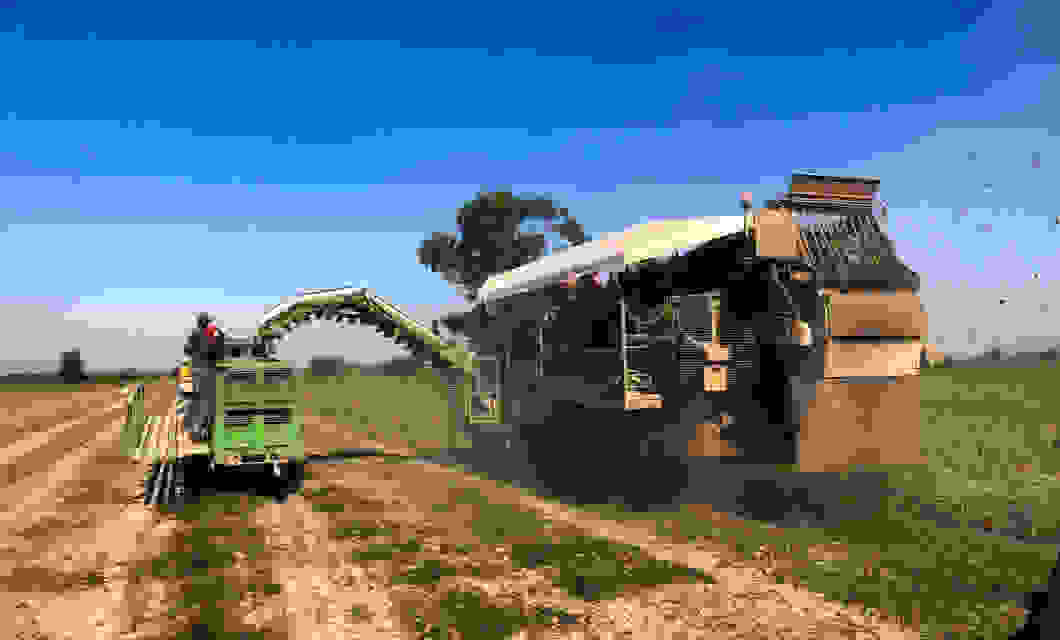Learnings from the tomato report: working conditions must also be monitored in the EU countries
9.10.2020
Sanni Martikainen

At the beginning of 2019, we did something totally new by publishing the first Radical Transparency report. The study explored the production of tinned tomatoes in Italy, and was conducted by the non-governmental organisation Oxfam, which produced its independent report based on the study.
The much publicised and commended report was also a pilot for a new research concept which we developed for use in parallel with conventional production condition audits.
We want to use the new model to investigate human rights challenges and their root causes associated with production chains, which are important to us and very topical. By identifying the reasons and backgrounds, we can find ways to solve problems together with our goods suppliers.
In the production of tinned tomatoes, key human rights issues are related to primary production – that is, tomato farms. The survey confirmed our understanding that these farms have a high number of employees of immigrant backgrounds, who are in a very vulnerable position in the labour market. They are often recruited by illegal gangmasters who deduct considerable agency and transport fees from their salaries. Therefore, the salaries paid to the employees are small, and they cannot afford adequate living conditions. Serious occupational safety shortcomings have also been detected on the farms.
Problems can now be reported anonymously
What has happened since the report was published? Quite a lot, I dare say.
Our goods suppliers were closely involved in producing the study right from the beginning. They participated and shared information openly with the study team. The open, constructive and cooperative atmosphere is invaluable when investigating and solving the responsibility issues of production chains.
We have analysed the results with our goods suppliers and paid several visits to the tomato farms in Southern Italy. Our goods suppliers have started using mechanical harvesting that is less labour-intensive and requires skilled employees. This has been found to clearly reduce risks at the farms and improve the position of employees. Our goods suppliers have also enhanced the monitoring of tomato farms.
I am particularly pleased with the fact that our largest goods suppliers quickly established anonymous whistleblowing channels where farm employees can report any instances of malpractice and poor working conditions.
The anonymous whistleblowing channels are an important way of allowing employees to voice their concerns without fear of getting into trouble for it. Every employee has also been personally informed of the whistleblowing channel in the documents distributed among them.
Risks also have to be monitored in the EU countries
The study carried a couple of years ago was a process that taught us many things. Diving deep into an individual product group took almost half a year’s work and involved search of information, numerous interviews and bringing together different parties. It is obvious that a similar study cannot be carried out for all production chains.
At the same time, the work increased our understanding of the workings of an entire production chain – of the roles and powers of influence of different actors, the society, legislation and production structures, as well as our own operating methods. These learnings can also be partly applied to other supply chains.
It is noteworthy that even serious human right risks may also be present in supply chains that do not involve countries traditionally considered risky or developing countries – after all, Italy is an EU country. With the report, we expanded our monitoring of social responsibility to cover the primary production of fresh fruit and vegetable products in Italy and other Mediterranean countries. We are therefore now monitoring the production of these products in the same manner as in high-risk countries.
If we do not want to also build heavy mechanisms for monitoring European production, we must also influence the structural and societal problems outside our supply chains. That is why we joined the Ethical Trading Initiative (ETI) working group, which seeks to tackle the problems of migrant workers in Italian agriculture. We have also disseminated information about the findings of the report in our international networks and informed the political decision-makers we have met.
We are also in favour of legislation that would obligate all companies to carefully identify their human rights risks and prevent their materialisation. The assessment and monitoring of human rights impacts in a value chain cannot be carried out on behalf of others, and it is also not fair that only some companies are responsible for implementing human rights. It is important that everyone participates.
Photos: SOK
Sanni Martikainen
Vastuullisuuspäällikkö
SOK Vastuullisuus